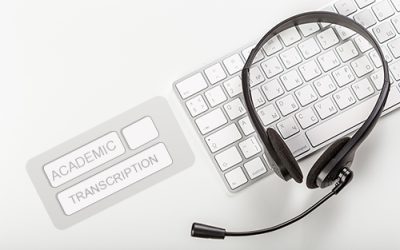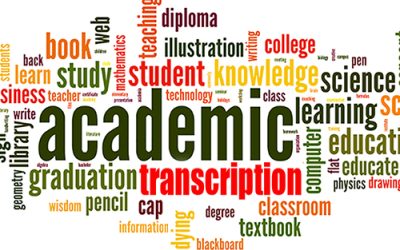In universities and colleges, research is essential as it increases one’s knowledge and credibility while aiding in gathering data for case studies and systematic investigations. As part of their research, academics and researchers often conduct interviews with individuals relevant to their study’s topic. To accurately capture and record the spoken material during these sessions, they heavily rely on various technologies and often seek professional transcription services to help transcribe their audio recordings.
While nearly every academic recognizes the benefits of digital recordings, there’s a caveat: reviewing digital recordings requires a painstaking amount of time. When researchers are ready to analyze the material, they must listen attentively, taking down notes and frequently rewinding to double-check statements. Transcribing a one-hour recording can easily take more than four hours. That’s not an effective use of anyone’s time, unless, of course, you’re a professional transcriptionist.
Different Research Methodologies That Require Transcription
- One-on-one Interviews: The most common style of interview is one-on-one, typically conducted with open-ended questions to gather in-depth data and better understand the research subject’s perspectives and experiences. By accurately quoting interview subjects from transcripts, researchers can contextualize their findings more effectively.
- Focus Group Discussions – Focus groups assist in gathering a wide variety of data from individuals with diverse viewpoints and backgrounds. However, cross talk or voice overlapping between respondents can pose challenges. Having a transcript of the conversation available would reduce researchers’ workload and confusion, as the speakers could be identified and tagged appropriately based on their views and responses.
- Seminars and Lectures: These gatherings involve a group of students receiving knowledge and instruction on a specific subject from a professor or subject matter expert. Some students choose to record lectures to focus more on the lesson by listening actively. Transcribing the seminars or lectures would enable students to concentrate and engage more effectively during classes.
- Consultations: Consultations are conversations between two individuals that frequently occur before making a decision, often involving a patient and a doctor. Medical transcription businesses are hired by doctors to obtain important patient data, such as medical histories, progress notes, and insurance claims. This allows doctors more time for rounds or clinical visits, enhancing their productivity and visibility at hospitals or healthcare facilities. Transcripts of patient records can also be a crucial tool for developing or improving treatments for both well-known and newly discovered diseases.
- Meetings and Conferences – Conferences are formal gatherings that often span several days, involving participants with similar interests. Recording the sessions and converting them into meeting minutes would benefit attendees by providing reminders of important subjects and information covered. Additionally, conference attendees who might have missed or overlooked certain information due to the large crowds could refer to the available meeting minutes and transcriptions.
Transcriptions not only provide researchers and students with more free time for other important duties or learning new material but also ensure that their notes are well-organized and easier to distribute, reducing academic fatigue or burnout. Professional transcription services can assist you in converting your recordings into accurate research transcripts.




